
Anxiety and depression are two of the most common mental health challenges people face today, affecting millions globally. While medication and therapy are essential for many, there is also a growing interest in holistic approaches to mental health that can provide relief and support. Holistic remedies focus on the whole person’s mind, body, and spirit, restoring balance and promoting overall well-being.
In this blog post, we’ll explore several natural and holistic remedies for managing anxiety and depression, empowering you with tools to incorporate into your daily life.
1. Mindfulness and Meditation:
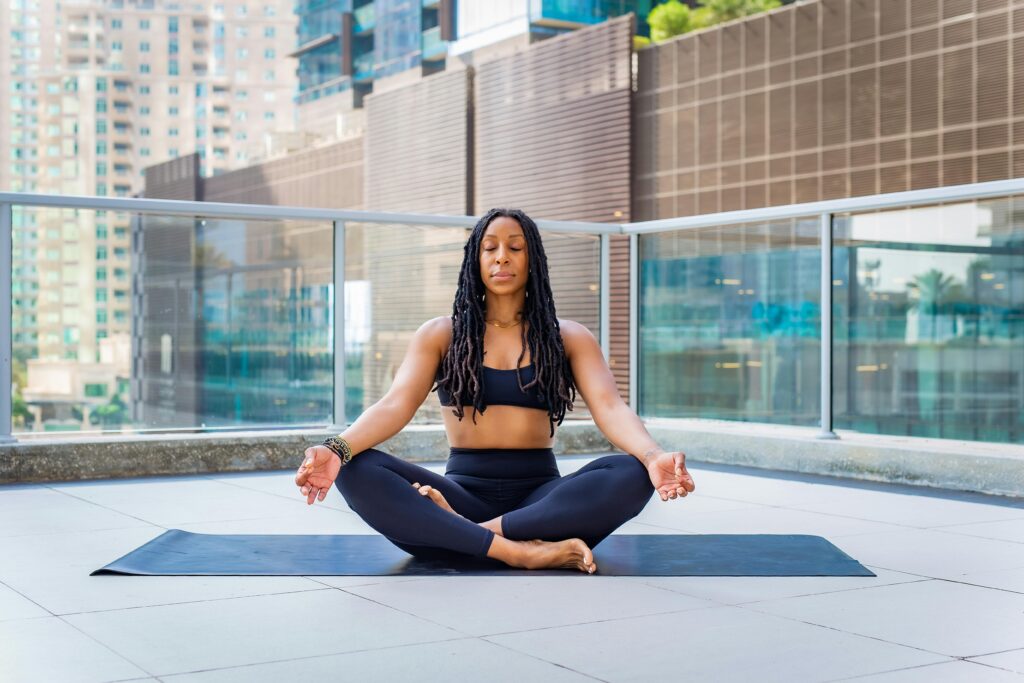
Mindfulness meditation is one of the most effective tools for reducing symptoms of anxiety and depression. By focusing on the present moment, mindfulness helps you detach from overwhelming thoughts and feelings that can fuel these conditions.
How to practice mindfulness:
- Deep breathing exercises: Focus on your breath, inhaling for a count of four, holding for four, and exhaling for four.
- Body scan: Pay attention to each body part, noticing any tension or discomfort. Gently release any stress you’re holding.
- Mindful walking meditation: Mindful walking meditation is a great way to bring mindfulness into your everyday movements. It can be done indoors or outdoors and involves walking slowly and deliberately, paying attention to each step you take. This practice helps cultivate awareness and brings your attention to the body and its movement.
Practicing mindfulness regularly can help reduce rumination, improve emotional regulation, and create a sense of calm.
2. Herbal Remedies
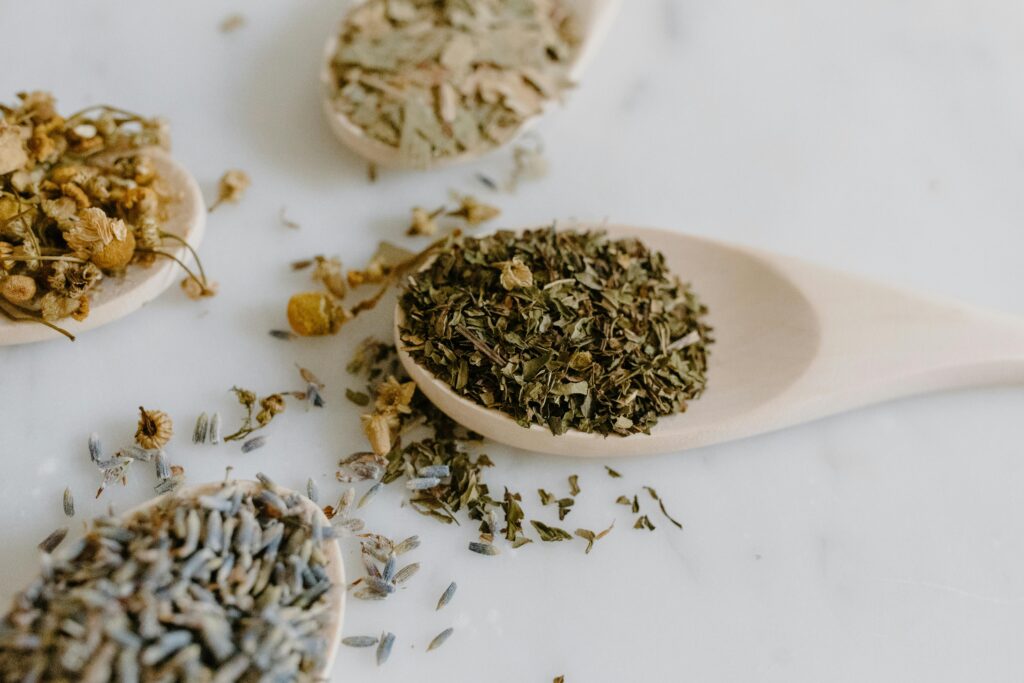
Many herbs have long been used to support emotional health, offering natural alternatives to pharmaceutical treatments. Some herbs are thought to have mood-stabilizing properties, while others can help reduce stress and anxiety.
Top herbs for anxiety and depression:
- St. John’s Wort: Known for its mood-lifting properties, St. John’s Wort is often used to treat mild to moderate depression.
- Ashwagandha: An adaptogenic herb, ashwagandha helps the body adapt to stress and may reduce anxiety by lowering cortisol levels.
- Lavender: Lavender essential oil has been shown to reduce anxiety symptoms and improve sleep quality. It can be used in aromatherapy, added to a bath, or applied topically when diluted.
- Chamomile: Chamomile tea is well-known for its calming effects and can promote relaxation before bedtime.
Always consult a healthcare provider before adding new herbs or supplements to your routine, especially if you are taking other medications.
3. Nutrition:
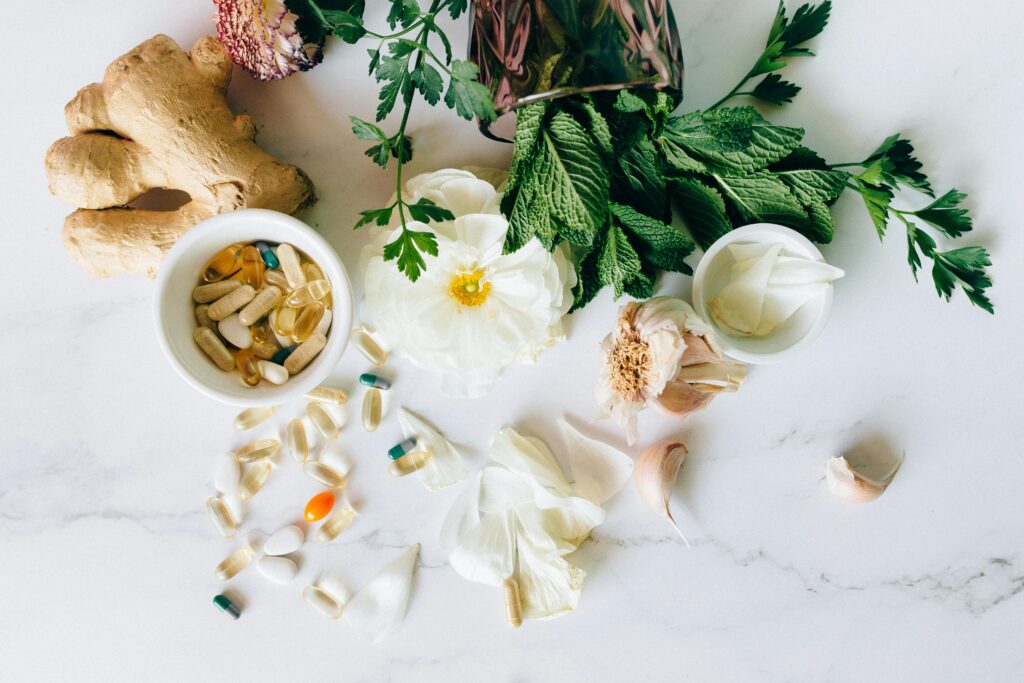
The food we eat has a direct impact on our mental and emotional health. Nutritional deficiencies, such as low levels of omega-3 fatty acids, B vitamins, and magnesium, can exacerbate symptoms of anxiety and depression.
Nutritional tips for mental well-being:
- Omega-3 fatty acids: Found in fish (like salmon and sardines), flaxseeds, chia seeds, and walnuts, omega-3s play a key role in brain health and may help reduce symptoms of depression.
- Magnesium: This essential mineral has calming properties and is found in leafy greens, nuts, seeds, and whole grains.
- B vitamins: Particularly B6, B9 (folate), and B12, these vitamins help regulate mood. You can find them in foods like leafy greens, beans, whole grains, and lean meats.
- Probiotics: Gut health is closely linked to mental health. Fermented foods like yogurt, kefir, sauerkraut, and kombucha can support the gut microbiome, which may positively affect mood and reduce anxiety.
A well-balanced diet, rich in whole foods, can provide the necessary nutrients for optimal brain function and emotional stability.
4. Exercise:
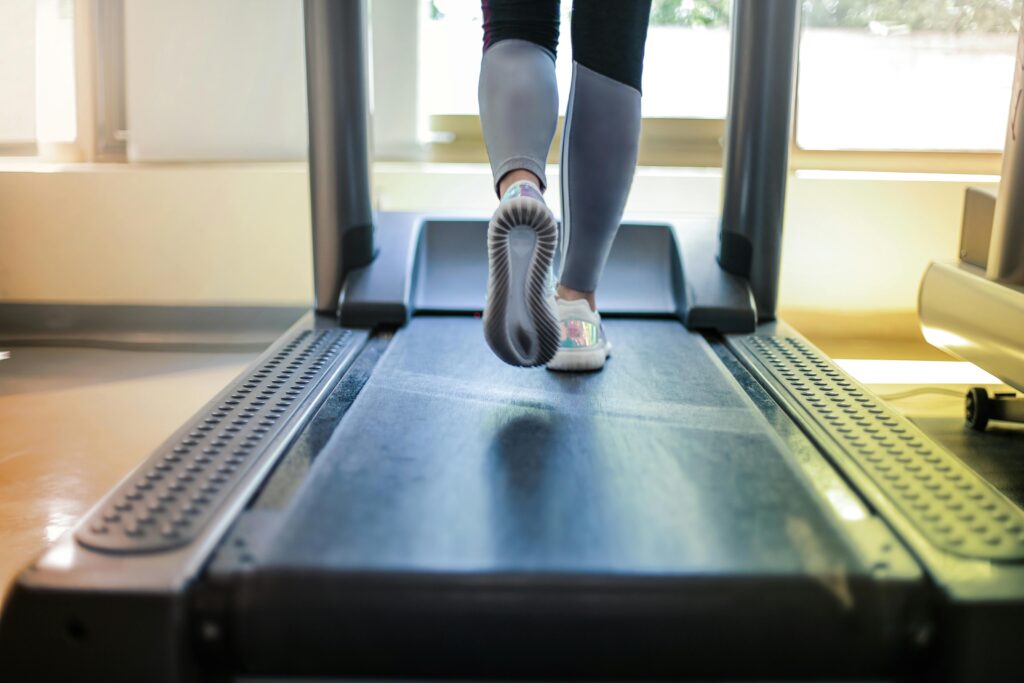
Exercise is one of the most effective ways to combat both anxiety and depression. Physical activity releases endorphins (the body’s natural “feel-good” chemicals), reduces stress hormones like cortisol, and promotes better sleep—all of which are essential for mental well-being.
Recommended exercises:
- Aerobic activities: Walking, running, swimming, and cycling can increase serotonin levels and reduce anxiety.
- Yoga: Combining breathwork, mindfulness, and movement, yoga can calm the nervous system and help release stored tension in the body.
- Strength training: Lifting weights or doing bodyweight exercises can improve self-esteem and reduce feelings of depression.
Aim for at least 30 minutes of moderate exercise most days of the week to experience the benefits.
5. Sleep Hygiene:
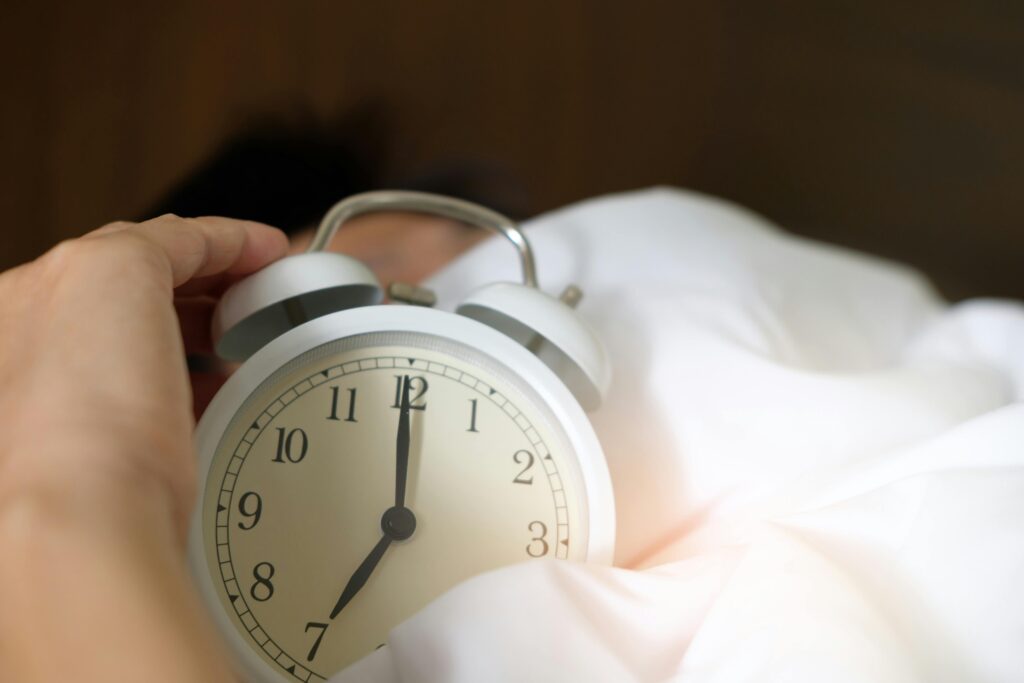
Sleep plays a crucial role in managing anxiety and depression. Poor sleep can exacerbate symptoms, while restorative sleep can improve mood, energy, and mental clarity.
Tips for better sleep hygiene:
- Set a regular sleep schedule: Go to bed and wake up at the same time every day, even on weekends.
- Create a relaxing bedtime routine: Engage in calming activities like reading, listening to soothing music, or practicing gentle stretches before bed.
- Limit screen time: Reduce exposure to blue light from screens at least an hour before bed, as it can interfere with melatonin production and disrupt sleep.
- Mindful breathing or relaxation techniques: Try progressive muscle relaxation or guided breathing exercises to help quiet your mind before sleep.
Good sleep hygiene helps regulate the body’s circadian rhythm, improve mood, and restore energy levels.
6. Aromatherapy:
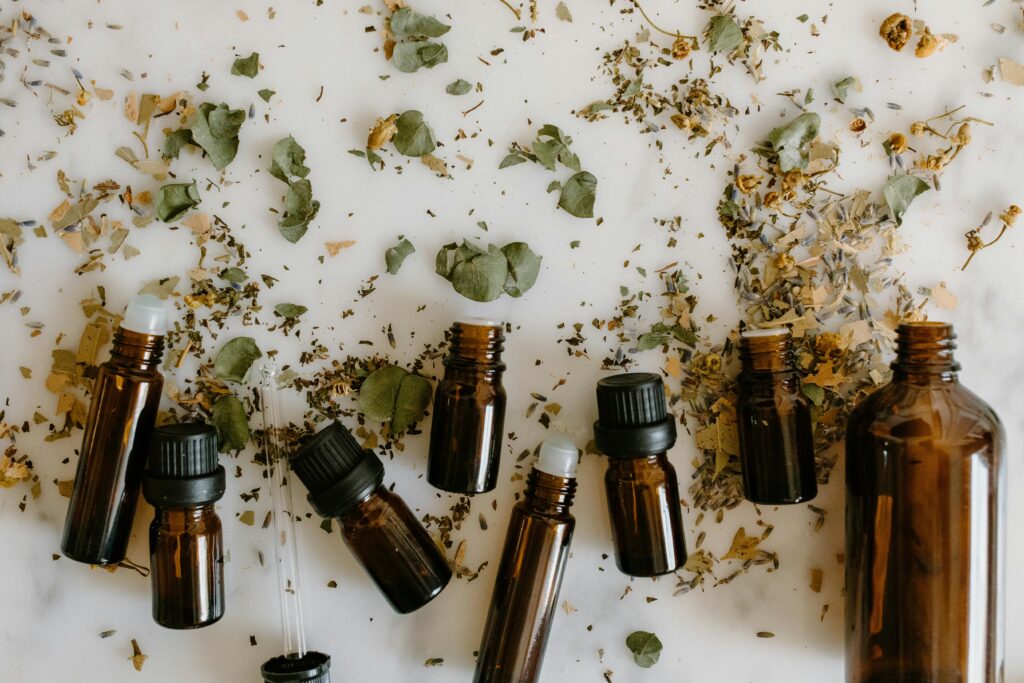
Aromatherapy is the use of essential oils to promote emotional well-being. Certain scents have been found to reduce anxiety, promote relaxation, and even lift the mood.
Essential oils for anxiety and depression:
- Lavender: As mentioned earlier, lavender is a powerful calming oil that promotes relaxation and reduces feelings of stress.
- Bergamot: This citrus-scented oil is uplifting and may help reduce anxiety and depression symptoms.
- Frankincense: Known for its grounding properties, frankincense can help with deep breathing and stress relief.
- Ylang-ylang: This sweet floral oil can help uplift the mood and ease feelings of sadness or nervousness.
To use essential oils, diffuse them in a diffuser, apply diluted oil to your pulse points, or add a few drops to your bath for a calming experience.
7. Social Support:

One of the most powerful ways to combat anxiety and depression is through social connection. Isolation can worsen mental health, while positive, supportive relationships can help boost your mood and provide comfort during difficult times.
Ways to build social support:
- Reach out to friends and family: Even a quick check-in with a loved one can make a difference in your emotional well-being.
- Join a support group: Online or in-person groups for anxiety or depression can provide a sense of community and understanding.
- Engage in activities you enjoy: Whether it’s volunteering, joining a hobby group, or taking a class, engaging with others over shared interests can help lift your spirits.
Remember, it’s okay to ask for help, and seeking support from others is a sign of strength, not weakness.
Conclusion:
While anxiety and depression are serious conditions that require attention and care, holistic remedies can serve as valuable tools in managing symptoms and improving overall well-being. By incorporating practices like mindfulness, nutrition, exercise, and social support into your routine, you can support your mental and emotional health in a more natural, balanced way.
It’s important to remember that everyone’s journey with mental health is unique. Holistic approaches work best when combined with professional care, so if you’re struggling with anxiety or depression, don’t hesitate to reach out to a healthcare provider for guidance. You deserve to feel your best, and there’s a world of natural remedies to help you get there.
Would you like to dive deeper into any of these topics or explore more strategies? Feel free to leave a comment or share your experience!
Disclaimer:
The information provided in this blog post is for general informational purposes only and should not be construed as medical advice. While holistic remedies can offer valuable support for mental health, they are not a substitute for professional medical treatment. Anxiety and depression are serious mental health conditions that may require the guidance of a healthcare provider, therapist, or mental health professional. Always consult with a qualified healthcare professional before starting any new treatment, supplement, or lifestyle change, especially if you are currently taking medication or have existing health conditions.
Results from holistic remedies may vary from person to person, and it is important to approach mental health in a holistic and personalized way. If you or someone you know is experiencing severe symptoms, please seek immediate medical attention.
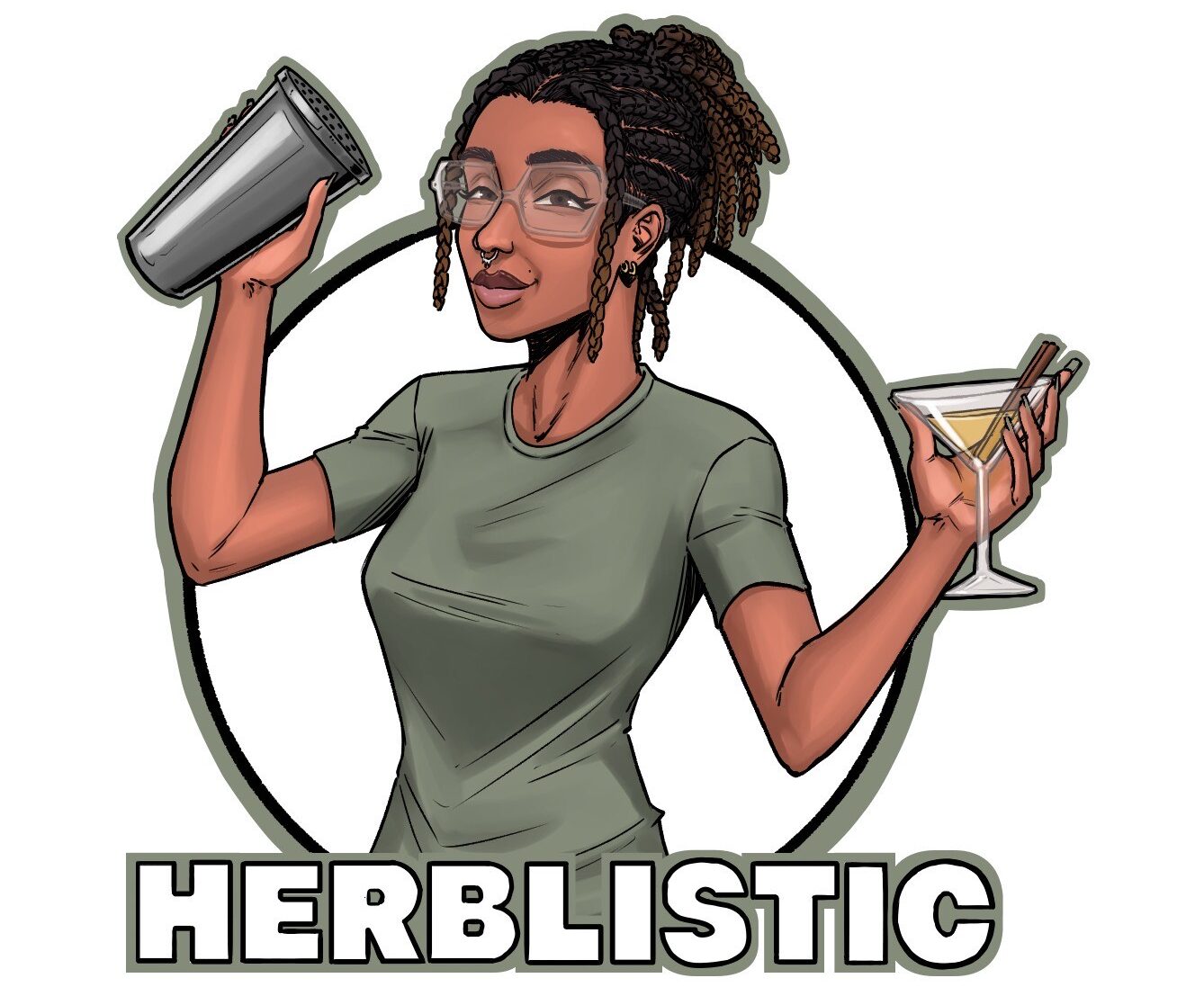
This is so helpful!
Thank you!